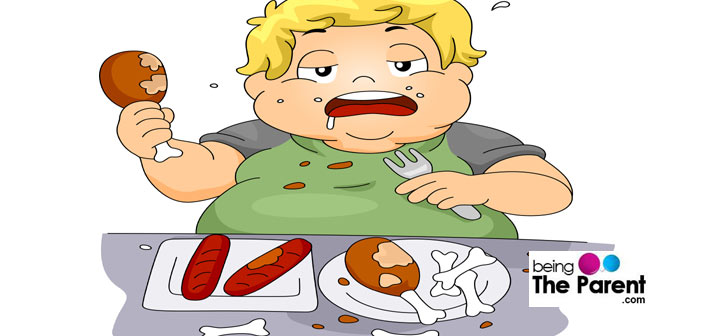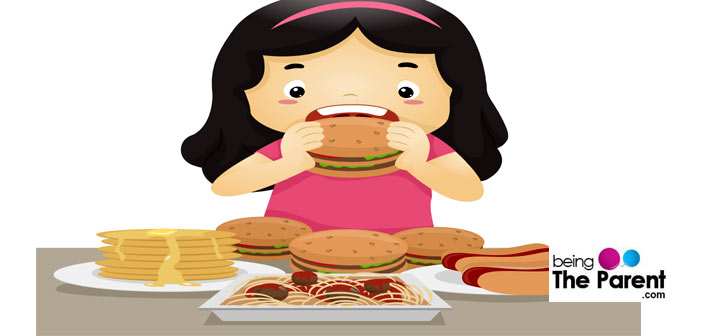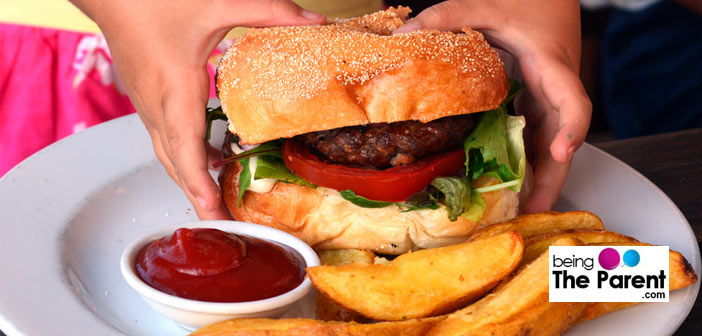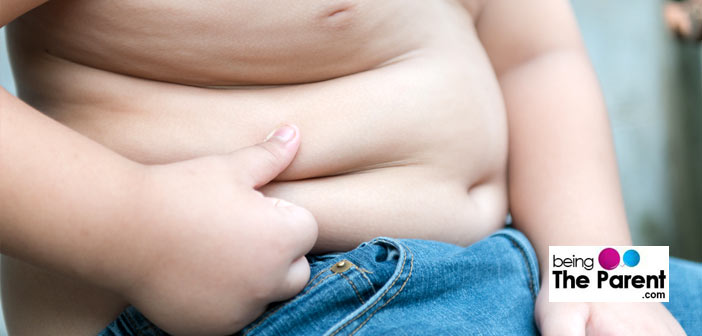
Binge Eating Disorder In Children
5 min readWritten by Editorial Team


It is very hard to understand when your child is eating too much or too little. A growing child’s appetite changes every day. Some days it seems like the children will never stop eating and on others they are very picky eaters. When they are going through a growth spurt, their body requires additional nutrients and energy to grow muscle and bone. At this time, their eating is guided by the needs of the body, and is perfectly alright. Binge eating however, is different from normal appetite fluctuations or bouts of overeating. Binge eating is generally a result of some inherent problem, and in this case, a kid tends to find comfort in food.
What is Binge Eating Disorder?
Binge eating is as the name suggests, is eating large amounts of food frequently, at least once a week over a period of time such as three months. Unlike overeating, those who binge eat feel they have no control over how much food they are eating. Your child may finish a bag of chips and grab a packet of cookies and still look out in the fridge for any leftovers of last night. And you’d be thinking that it is all okay since they are growing so much everyday. Usually it is, unless your child eats large amounts of food and also feels guilty or secretive about it. While binge eating might initially provide comfort, as binge eaters normally tend to find comfort in food, prolonged bingeing can lead to anxiety, stress or guilt. Binge eaters eat even when they do not feel hungry, and neither do they purge nor exercise compulsively to tackle the effects of binge eating. This can become a behavioral issue and often alternates with dieting.
Complications Of Binge Eating In Children
Binge eating can affect children who are obese or of normal weight and can affect boys and girls alike. Many children and teens with binge eating disorder become overweight or obese after long periods of overeating. The most common complications due to binge eating are similar in nature to obesity such as diabetes, high blood pressure, high cholesterol levels, gallbladder disease, heart disease, liver disease, depression and anxiety. Since it is done alone, parents might not be aware that the overeating is due to bingeing. Read how you are making your child obese and ways to prevent obesity in children.

Signs and Symptoms of Binge Eating In Kids
While it might be difficult to identify when a child is binge eating, there are signs to look out for:
- Large amounts of food missing from the refrigerator or the pantry
- A child eating large quantities of food very quickly
- Eating to cope with emotional stress such as family conflict, peer rejection, or poor academic performance. Often, binge eating episodes are related to stressful situations that might have resulted in home or in school
- A child feeling ashamed or disgusted by how much they have eaten, but not able to do anything about it
- Discovering empty food packets and wrappers hidden in a child’s room
- An increasingly irregular eating pattern, such as skipping meals, eating lots of junk food, and eating at unusual times such as late at night
- Avoiding school, social interactions
- When a child is self-conscious about body weight and shape
- A child’s weight is not stable and constantly fluctuates
- A child barely eats during meals to make up for his binge eating bouts

Causes of Binge Eating In Kids
While there is no clear known cause for binge eating, patients say episodes are usually triggered by emotions such as stress, anxiety, anger, sadness or boredom. Binge eaters most often tend to have a history of depression, anxiety and distress.
Differences Between Binge Eating Disorder and Other Eating Disorders
The main difference between binge eating and other eating disorders such as anorexia nervosa or bulimia nervosa is that binge eaters do not expunge the food they have eaten through vomiting or other means. However, they might compulsively fast or exercise after an episode of binge eating.
Diagnosis Of Binge Eating Disorder In Children
A child will be diagnosed with binge eating only after careful consideration of family history, medical history, family eating patterns and emotional issues. Medical tests might be performed to evaluate side effects and nutritional status. Doctors associate the below criteria to identify binge eating disorder:
- Feelings of lack of control after eating huge quantities of food in a patient
- No purging or vomiting by the patient after a binge eating episode
- The patient does not feel the need to compulsively exercise or use laxatives post a binge eating episode
- The patient eats until his stomach pains – and it become uncomfortable
- The patient eats even when he does not feel hungry, and eats when he is alone. He also acts secretive about it
Treatment of Binge Eating Disorder In Kids
There is no direct treatment for binge eating. Therapy and counselling are recommended to address emotional issues and to learn healthy coping techniques for dealing with binge eating triggers. A healthy diet and family counselling will be advised to help the child achieve a healthy weight and mindset. Nevertheless, the best way a parent can help a child dealing with binge eating is:

- Do your research to understand how best to address this problem as there is no simple solution. Consult a doctor as soon as possible
- Listen to your child without judgement or blame
- Talk to your child about the issue calmly to voice your concern. Be sensitive as it isn’t really about eating but about underlying emotional issues
- Voice and show your support to reassure your child that you support them and are on their side. Don’t keep nagging about what and how much to eat
- Organize family activities that do not revolve around eating
The road to recovery is very long and a frustrating one for both parents and children alike. A strong support system will be required during this period. Counselling for the well-being of parents or finding a support group can be beneficial.
With the help of family, friends, and healthcare professionals, the child can start eating adequate amounts of food and learn to manage emotional issues in healthier ways.

Editorial Team,
With a rich experience in pregnancy and parenting, our team of experts create insightful, well-curated, and easy-to-read content for our to-be-parents and parents at all stages of parenting.Read more.
Responses (0)
Want curated content sharply tailored for your exact stage of parenting?
Related articles

Hematuria (Blood in Urine) in Children – Causes, Symptoms and Treatment

Impact of Television on Children – Advantages and Disadvantages

Slapped Cheek Syndrome(Fifth Disease) in Children – What is it, Symptoms and Tips to Prevent

Top 10 Most Popular Craft Books For Kids

Color Blindness in Children

Safety For Children While Using Cars With Sunroofs by Dr. Chetan Ginigeri
Sponsored content
Discover great local businesses around you for your kids.
Get regular updates, great recommendations and other right stuff at the right time.





